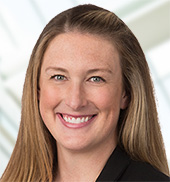As proprietary institutions of higher education are acutely aware, the U.S. Department of Education’s new 90/10 regulations take effect July 1, 2023 and apply to fiscal years starting on or after January 1, 2023. The regulations, among other changes, require proprietary institutions to derive at least 10 percent of their revenue from sources other than “Federal education assistance funds.” For an explanation of additional changes to the 90/10 rule, please see our earlier blog post: Negotiated rulemaking and the new 90/10 rule.
Last week, the Department updated its list of Frequently Asked Questions and Answers with respect to the new 90/10 regulations. The FAQs provide additional clarifications and interpretations from the Department. Importantly, the guidance makes clear that Department’s position that tuition and fee revenues from non-Title IV distance and hybrid programs do not count as non-federal revenue for 90/10 rule purposes. The guidance also addresses questions about ineligible programs, comingled federal and state funds, income share agreements, enrollment limitations, exiting Title IV programs, the disbursement rule, and treatment of subsequent fiscal years.
Given the significance of the resulting regulatory changes, and the challenges they create for many proprietary institutions, we determined to create a whitepaper compiling strategies we have seen used for managing 90/10 rule compliance. The whitepaper is designed to assist proprietary institutions as they review the new rule and consider how best to comply with its new requirements, and is available for download here.
In particular, the whitepaper considers the significance of each of the following revenue streams according to the parameters prescribed by the new 90/10 rule:
- Revenue from External Student Scholarships
- Revenue from Internal Student Scholarships
- Revenue from Employer Tuition Payments
- Revenue from Non-Title IV Programs
- Revenue from Student Education or Training Activities
- Revenue from Third-Party Loans
- Revenue from Institutional Loans
Additionally, this resource addresses student recruiting, international locations and partnerships, and program pricing as possible areas of consideration for institutions looking to improve their 90/10 metrics.
For inquiries regarding 90/10 compliance or related matters, institutions are welcome to contact Aaron Lacey or Scott Goldschmidt.
Aaron Lacey is the Chair of Thompson Coburn’s Higher Education Practice, host of the firm’s popular Higher Education Webinar Series, and editorial director of REGucation, the firm’s higher education law and policy blog. Scott Goldschmidt is the former Deputy General Counsel for Catholic University and a partner in the firm’s Higher Education practice.
The information contained herein is provided for educational and informational purposes only, and should not be construed as legal advice. You should not act or refrain from acting on the basis of any content included without seeking legal advice based on the particular facts and circumstances at issue.












